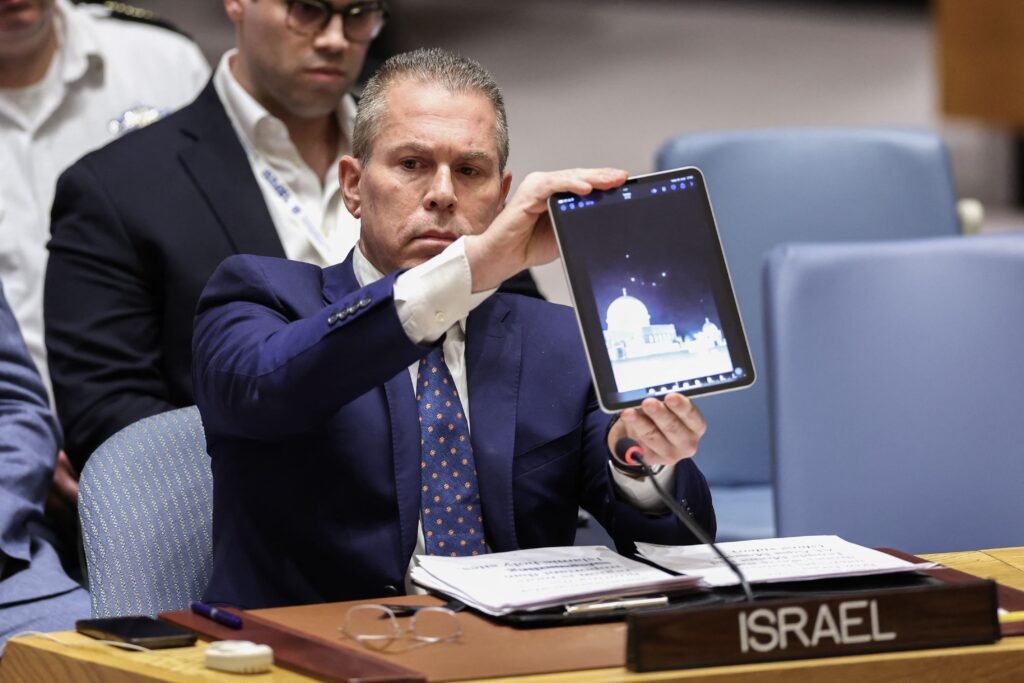On the night between 13 and 14 April, theIran conducted an armed attack on Tel Aviv, by launching a large quantity of ballistic missiles and drones. Some of them also came from Lebanese territory, attributed to Hezbollah.
According to the first statements by the Iranian stateit would be the exercise of natural right of self-defense pursuant to art. 51 of the Charter of the United Nations in response to continued Israeli aggression, culminating in the attack on the diplomatic headquarters of the Republic of Iran in Damascus, Syria, and the reported “martyrdom” of the Iranian military advisors present. The Iranian Foreign Minister also evokes a responsibility of his State connected to his own functional role in maintaining stability in the regional area against Israelaccused, among other things, of carrying out an apartheid regime in the occupied territories and a “genocidal campaign” against the Palestinian people.
Intelligence sources had predicted the imminent attack by Iran, to which Israel responded effectively. Thanks to the system Iron Dome et al defensive support provided by US naval assets in the Red Sea, including the US Navy flagship aircraft carrier USS Eisenhower, the effects of the Iranian attack did not produce devastating effects.
Numerous supporting statements demonstrate publicly to Israel and condemnation of aggression by Iran, including that of Italy. The first reaction of the UN Secretary General, limited to a call for the immediate cessation of hostilities to avoid “another war”, was rather weak, in line with the scarcely decision-making orientation of more recent times. A Security Council meeting is expected on April 14, approximately 24 hours after it took place.
Iranian aggression and the legal point of view
Iran’s military action aimed against Israel through massive air operations appears hardly attributable to an exercise of self-defense pursuant to art. 51 of the United Nations Charter following the attack on the Iranian embassy in Syria. Firstly, from a temporal point of view, it does not follow a current or imminent armed attack, the one referred to having concluded days ago. Secondly, Israel did not claim responsibility for this attack, but was attributed to the same by Iran. Furthermore, it hit an Iranian diplomatic headquarters located on the territory of a third state, Syria.
On the other hand, theIranian action conducted on April 13 it could have the characteristics of an assault pursuant to art. 2 par.4 of the UN Charter, as clearly and openly a massive armed attack started from the territory of the Islamic Republic of Iran against another sovereign state. There Israeli response it seems, however, configurable as aaction in self-defense in the face of a current armed attack and aimed at repelling it according to proportionality criteria, in accordance with art. 51 of the United Nations Charter. The US or other states’ defense support in turn it seems to be configurable as a hypothesis of intervention in collective self-defense.
From a formal point of view – although from the very beginning of the armed conflict between Israel and Hamas a involvementnot proven, of the reIslamic public of Iran in support of the latter or of the Houthi attacks in the Red Sea -, it was a non-controversial support and of a logistical nature. A indirect involvement in armed conflict, through the support of armed groups, but without direct intervention, is generally not considered suitable for qualifying a State as part of it. It therefore resulted from exclude direct involvement of Iran as a belligerent party to an international armed conflict. From a legal point of view, recent events can instead be configured as an act of aggression, as defined internationally, against the sovereignty of another State, such as to give rise to an international armed conflict. In this case, the existence of a would appear incontrovertible the spirit of warsuch as to qualify the latter as “war” from a legal point of view.
I Iranian bombingstherefore, they certainly represented aesclalation from a military perspectivebut also a turning point, making the armed conflict between Israel and the Islamic Republic of Iran clear and direct.
Just an iintense diplomatic activityin any case, could mitigate the deterioration of the crisis in the Middle Eastern area, which, at present, appears critically destabilized, without forgetting that there is suspicion of the possession of nuclear weapons among the parties to the conflict.
The upcoming meetings of the G7 and the UN Security Council, already convened, together with the reactions of support for Israel coming from a wide range of actors, including NATO, demonstrate the concern of the international community regarding the destabilization of the area.
